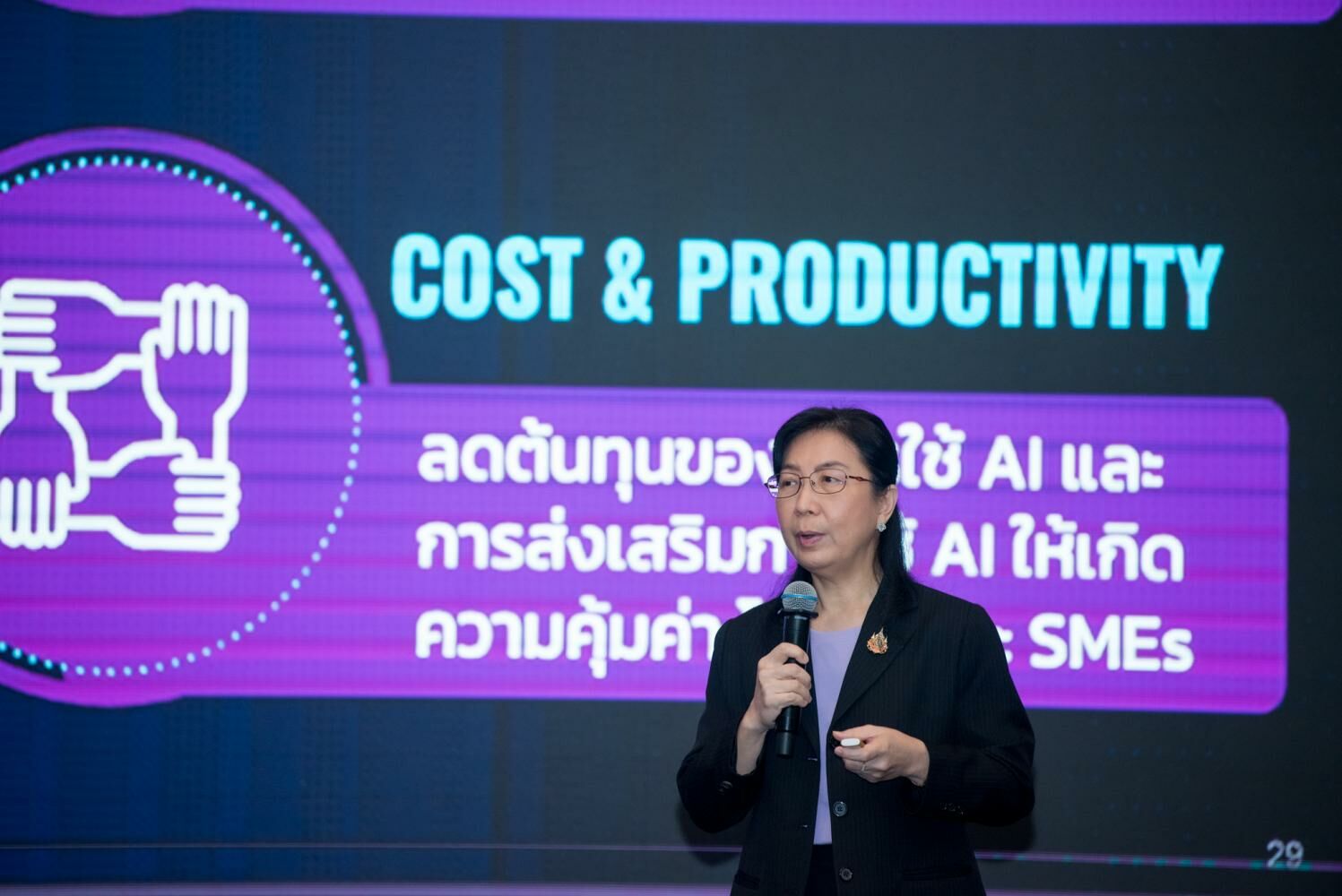Thai businesses gear up for AI-mazing future with tech adoption plans

A recent survey reveals that approximately 17% of Thai organisations are currently utilising artificial intelligence (AI), with 73% planning to adopt the technology in the future. This data comes from the Readiness for the Application of AI Technology for Digital Services in 2024 survey, conducted by the Electronic Transactions Development Agency (ETDA) and the National Science Technology Development Agency (NSTDA).
From July to September, researchers contacted 3,758 organisations, receiving responses from 580. The survey encompassed both the public and private sectors across 10 groups outlined in Thailand’s AI Action Plan, including agriculture, food, finance, and trade.
AI readiness among organisations was classified into four levels: unaware or in the initial learning phase, aware and starting to implement AI, ready and prepared to use AI, and competent, indicating a strong capability in utilising AI.
Kalaya Udomvitid, NSTDA Vice-President, highlighted that 17.8% of organisations have already implemented AI, an increase from 15% last year. Additionally, 73.3% of organisations plan to adopt AI, up from 56% last year, while 8.9% have no plans to use AI, down from 28.2% year-on-year.
“This suggests the adoption of AI in organisations across Thailand is expected to increase rapidly.”
The primary objectives for organisations implementing AI are to enhance production or service efficiency, improve internal management, and create added value for their products and services. Organisations using AI report an average readiness score of 55.1%, recognising the technology’s importance by integrating it into their operations.
AI adoption
For those yet to implement AI, the top reasons are uncertainty about application methods, waiting for leadership policies that emphasise AI adoption, and a lack of readiness or budgetary support, including the necessary return on investment for effective AI implementation.
The survey also indicates a growing trend of organisations adopting generative AI (GenAI) to boost their operations. The top three areas for GenAI implementation are product and service development, marketing, sales and customer service, and production processes.
Despite the benefits, organisations face challenges in leveraging GenAI, such as a shortage of skilled personnel, concerns about data quality, and insufficient funding for technology acquisition and development. Notably, no respondents expressed a desire to replace human jobs entirely with AI. Instead, the focus is on training personnel to collaborate more effectively with GenAI.
Chai Wutiwiwatchai, Executive Director of the National Electronics and Computer Technology Centre (NECTEC), expects the prime minister to endorse the establishment of a National AI committee by the end of this year. This committee will execute the second phase of the country’s National AI Strategy and Action Plan (2024 to 2027).
“The nation needs to establish a national AI centre to develop a policy strategy that promotes human development in AI and provides facilities for building proof of concept AI use cases to help reduce costs for organisations.”
NECTEC is awaiting a budget of 1 billion baht (US$30 million) for developing an AI workforce, targeting the training of 30,000 workers, reported Bangkok Post.
Chaichana Mitrpant, Executive Director of ETDA, announced that by next month, the agency will introduce GenAI risk guidelines for organisations. The ETDA also plans to explore AI regulations related to self-driving vehicles and intellectual property rights for media using GenAI in its work.
Latest Thailand News
Follow The Thaiger on Google News:


























